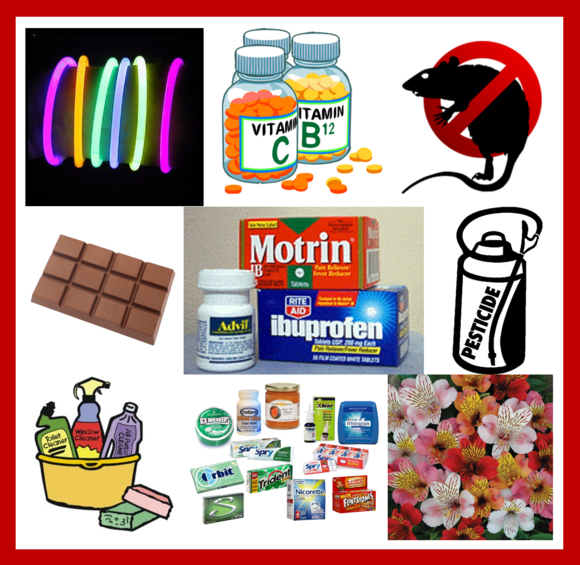
Household Pet Poisons
24th September 2015
Common household items, if ingested, can threaten the health and life of your pet. Being aware of these dangers is an important aspect of responsible pet ownership. We all want our pets to be happy, health, and safe, so become knowledgeable about these poisons!
The most common dangers in your home are cleaners, pest-control chemicals, medications, supplements, and plants. You can find a more detailed list through VetStreet by clicking here. Also, although delicious to us, some of the foods we eat can be harmful and even deadly if eaten by our pets. The ASPCA Animal Poison Control Center lists food items such as chocolate, alcohol, onions, and grapes that should never be eaten by pets. You can find the complete list here.

Do your best to prevent your pet from accessing any potential poisons. “Pet-proof” your home! Stow chemicals and cleaners in cabinets and closets that securely close. Food items should be stored in a pantry, cabinet, fridge, or locking container. Never leave medications lying around and store in their original, child-safe bottles. Do not give your pet over the counter human medications to treat ailments unless told to by a vet. You may unintentionally poison your pet. Be sure to inform your family members about pet poisons, especially children! Hazardous plants should be avoided unless always separated from your pets. There are plenty of pet-friend plants, so consider these options when adding greener to your home. Click here to find some beautiful examples!
Have an emergency plan! If you know or suspect that your pet has ingested a chemical, call your vet as soon as possible. Sometimes an emergency can occur after-hours so be sure to have the phone number and address of the closest 24-hour emergency veterinary hospital handy! Be prepared and know the quickest traffic route to the hospital! The vet will need to know what your pet has eaten so bring the container, package, or label with you.
The following is a list of the ten most commonly ingested toxins by dogs and cats, according to the Pet Poison Helpline:
Canine Poisons:
- Chocolate
- Mouse and rat poisons
- Vitamin and mineral supplements
- Pain-relieving/fever reducing medications (aspirin, ibuprofen, naproxen, etc.)
- Cardiac medications
- Cold and allergy medications (pseudoephedrine, phenylephrine, etc.)
- Antidepressants
- Xylitol (sweetener)
- Acetaminophen (e.g., Tylenol)
- Caffeine Pills
Feline Poisons:
- Topical spot-on insecticides
- Household cleaners
- Antidepressants
- Lilies
- Insoluble oxalate-containing plants (e.g., Dieffenbachia, Philodendron, etc.)
- Pain-relieving/fever reducing medications (aspirin, ibuprofen, naproxen, etc.)
- Cold and flu medications (pseudoephedrine, phenylephrine, etc.)
- Glow sticks
- ADD/ADHD medications/amphetamines
- Mouse and rat poison


